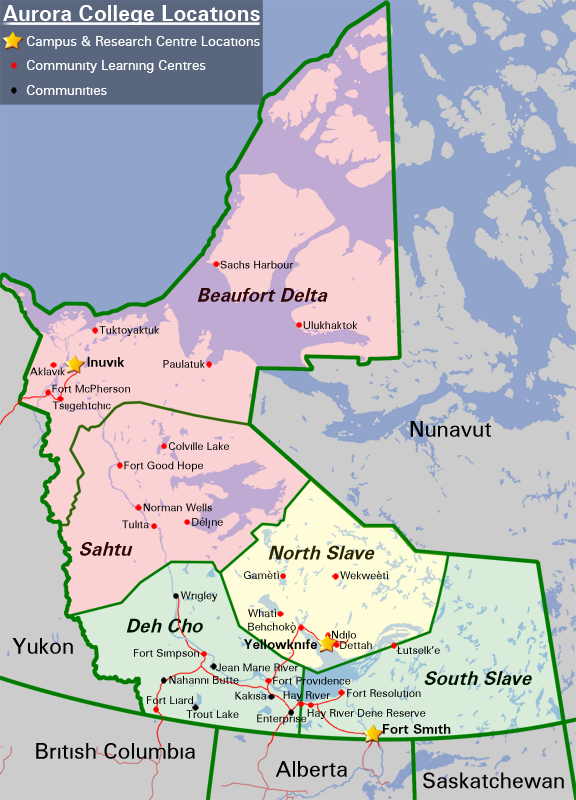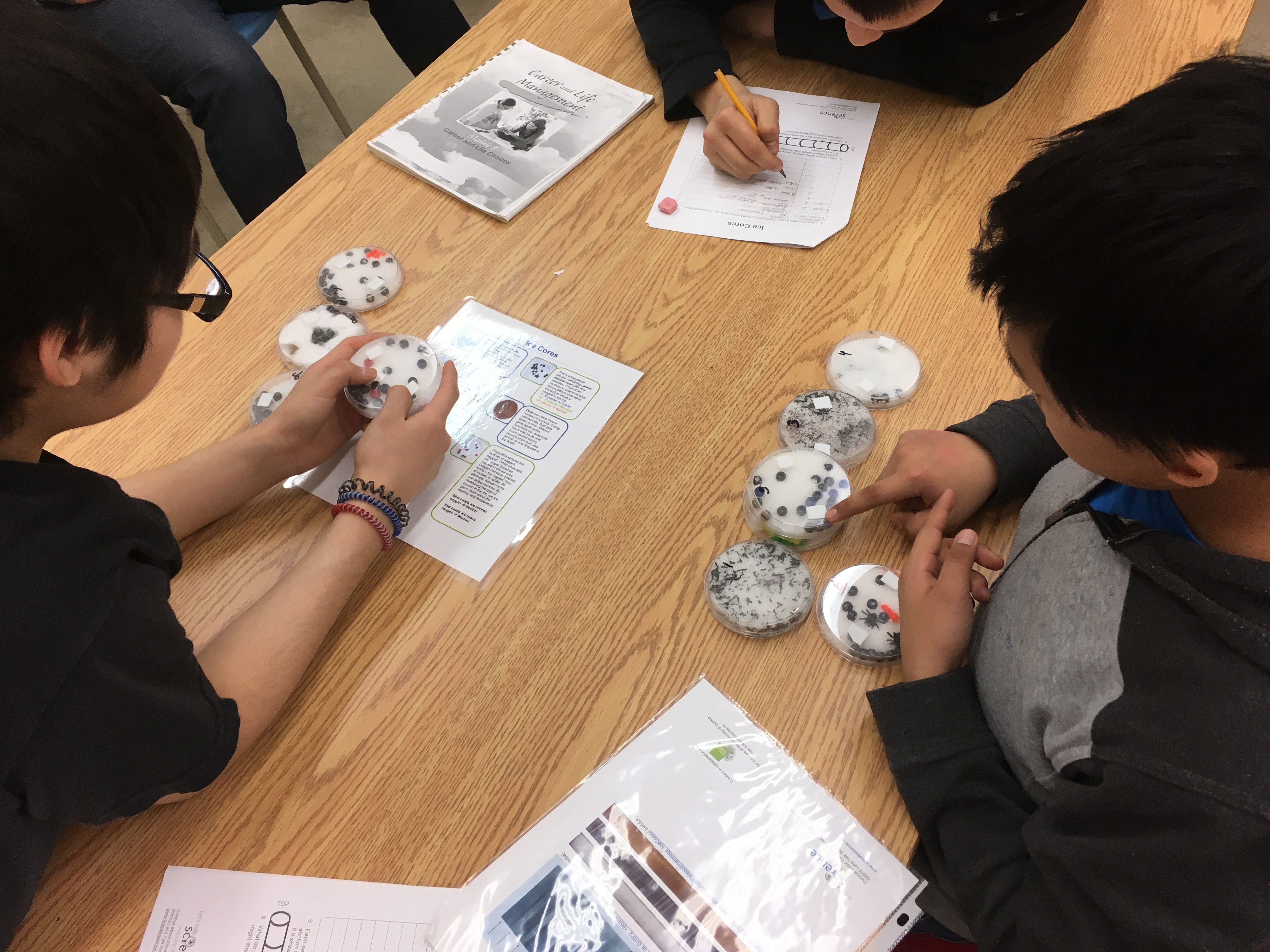STEM outreach for youth and educators in the Beaufort Delta region of the Northwest Territories
Author
- A. Trimble, Aurora Research Institute, Aurora College, Inuvik, Canada, atrimble@auroracollege.nt.ca
Citation information
Trimble, A. 2020. STEM outreach for youth and educators in the Beaufort Delta region of the Northwest Territories. Polar Knowledge: Aqhaliat Report, volume 3, Polar Knowledge Canada, p. 8–11. DOI: 10.35298/pkc.2020.02.eng
Article
With support from Polar Knowledge Canada, the Aurora Research Institute's (ARI) Western Arctic Research Centre offers hands-on learning experiences for youth, professional development sessions and support for teachers, and community events to improve science literacy and foster interest and confidence in the sciences.
Opportunities for youth to engage in hands-on scientific learning are usually limited in the Northwest Territories (NWT), particularly in the more remote communities. As a result, interest in Science, Technology, Engineering and Math (STEM) subjects and careers in the North may be lower among youth than in other parts of Canada. Fostering student interest and engagement in the sciences, and improving their awareness of local STEM careers, will encourage more northern youth to pursue postsecondary education and return to the territory to fill these roles in Canada's North.
Thanks to a formative collaboration between ARI, Let's Talk Science, and the Beaufort Delta Education Council, and with support from Polar Knowledge Canada, an ARI Outreach Coordinator position was developed in Inuvik in 2016. The intent of this role is to serve educators and students while continuing ARI's standard outreach activities. The Outreach Coordinator serves the Beaufort Delta region, which includes eight communities and nine schools, with approximately 6,500 residents and 1,500 students. By being based in the North, the ARI outreach team has strong relationships with the community groups and schools it serves and offers sustained programming by connecting with northern youth and educators many times during the school year.
ARI's STEM outreach programming is dynamic, relevant to northern issues and areas of study, and based on the needs of educators and community youth programs. Special care is taken to integrate regional/traditional knowledge and languages into STEM programming and land-based activities, which makes for a rich learning experience. ARI also connects local STEM professionals and visiting researchers with youth and community members through interactive learning activities and plain language research talks.
The ARI outreach program is critical for building capacity among northern educators and youth in STEM fields. Demand for this programming is increasing. Consequently, the ARI STEM outreach program has been expanded to include its South Slave Research Centre, where the same community-oriented and responsive model is used. In time, ARI plans to further expand the STEM outreach program to its Yellowknife branch to reach youth and educators in the North Slave, Sahtu, and Deh Cho regions.

Figure 1: The ARI is located in the NWT, with headquarters in Inuvik, and branches in Fort Smith and Yellowknife

Figure 2: Students analyzing ice core models and tracking multiple indicators of climate change.
Table 1 ARI Outreach metrics for the Beaufort Delta region.
Participant metrics reflect the total number of participants reached at multiple events, not the number of unique individuals reached. The Outreach Coordinator position was established in 2016 to serve students and educators in the Beaufort Delta region, while continuing ARI's standard outreach activities. The intent of the program is to connect with northern residents many times in a given year.
| Outreach | 2015 | 2016: Year 1 | 2017: Year 2 | 2018: Year 3 | 2019: (Jan through Sept) |
|---|---|---|---|---|---|
| Youth Outreach (Preschool through Grade 12) | 7 events 1,110 youth 1 community |
18 events 466 youth 1 community |
41 events 1,204 youth 2 communities |
147 events 2,819 youth 6 communities |
94 events 2,188 youth 6 communities |
| Educator Outreach | None | 2 events 5 teachers from 1 community |
8 events 58 teachers from 8 communities |
14 events 127 teachers from 8 communities |
8 events 94 teachers from 8 communities |
| Community Outreach | 8 events 237 participants |
13 events 457 participants |
20 events 944 participants |
26 events 1,070 participants |
18 events 966 participants |
| Scientific Speaker Series | 8 speakers 9 events 145 participants |
27 speakers 14 events 277 participants |
28 speakers 13 events 311 participants |
40 speakers 15 events 325 participants |
40 speakers 15 events 325 participants |

Figure 3: Hydrology researchers offering students a series of challenges using scientific instruments and concepts that connect snowpack to stream health, wildlife, and forest fire frequency.
Polar Knowledge Canada
For media inquiries, contact:
communications@polar-polaire.gc.ca
Page details
- Date modified: